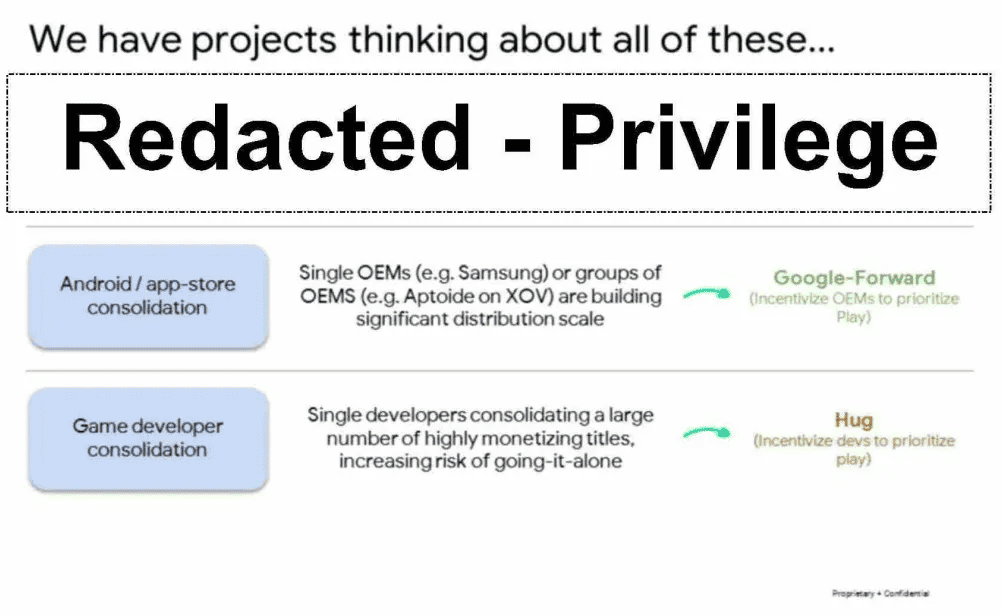It turns out Google was conspiring against Epic after all
2 min. read
Updated on
Read our disclosure page to find out how can you help MSPoweruser sustain the editorial team Read more

It has been somewhat confusing why Epic has been suing Google when the company could easily side-load apps on Android and circumvent any restrictions Google had on distribution and revenue share.
It turns out Epic had plenty of reasons to be upset at Google.
An unredacted version of Epic’s original complaint against Google has been unsealed by Judge James Donato. It reveals Google has been paying smartphone OEMs not to bundle Epic’s app store, as it feared other developers would defect from the Google Play Store and cost Google hundreds of millions to billions of dollars.
As part of its “Premier Device Program”, Google paid companies such as LG, Motorola, Oppo and Vivo, Sony, Sharp, Xiaomi and Nokia 12% of search revenue and 6% of Play Store revenue not to ship competing app stores.
Google was also paying developers such as Activision Blizzard to keep them out of alternate app stores such as the Samsung Galaxy Store.
The initiatives can be seen summarised in Google’s slide below:
Google even went so far as to try and purchase Tencent’s share of Epic (40%) to get more control over Epic.
When dealing with Epic directly, Google offered Epic $208 million in “special benefits” over three years to bring Fortnite to Google Play, and offered to take “only” 25% rather than 30% revenue cut. Google reportedly pointed out the “frankly abysmal” 15+ step process gamers would have to endure to sideload Fortnite on Android.
Documents that Google’s Finance Director for Platforms and Ecosystems prepared for the CFO of Alphabet showed that the company believed that if Epic was successful in bypassing the store, other companies would follow suit, threatening loss of market share in Android app distribution of up to $3.6 billion.
The complaint shows that despite cultivating an appearance of an open platform, Google was in fact working very hard to channel money spent on the platform via their coffers, and was working to stifle efforts of companies such as Epic to bypass them.
This is one of the reasons why Google is also being targeted for antitrust actions by 36 attorneys general, which will hopefully go some way to address the behaviour.
Has this news changes our reader’s view of the Epic/Google battle? Let us know below.
via the verge









User forum
0 messages